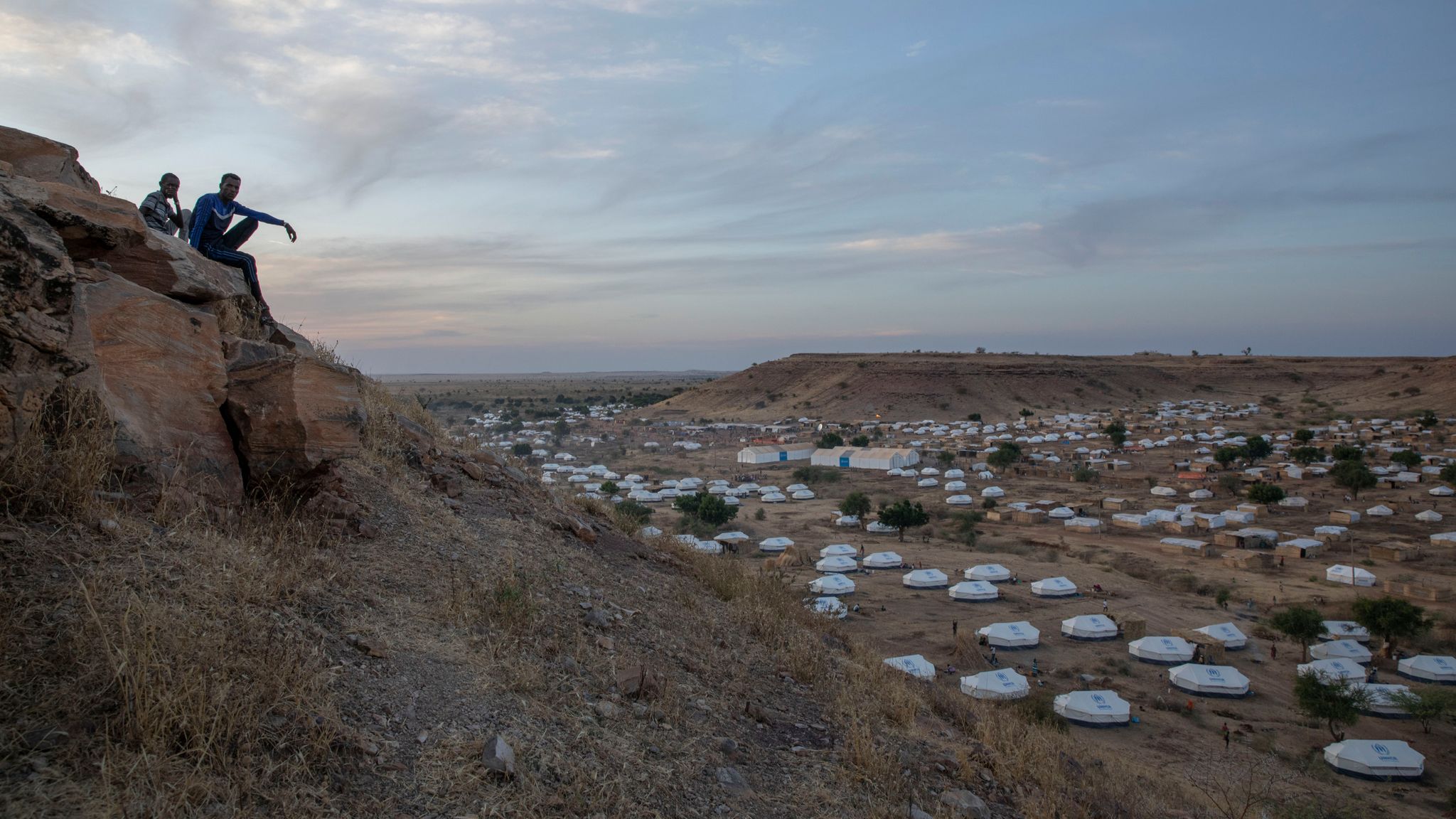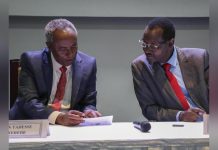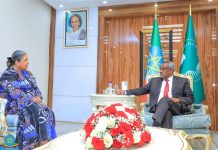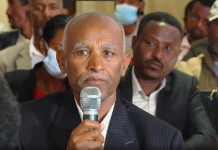Africa-Press-Ethiopia
This commentary is by Sarah Hunter, who grew up in Manchester Center and lives there now. She was a Peace Corps volunteer in Ethiopia from 2016 to 2019 and was a Fulbright Student grantee to Amman, Jordan, from 2019 to 2020. She is currently in graduate school, attending classes virtually.
Maybe it was the end of 2018 or the beginning of 2019 –– I can’t remember — but the topic of conversation was a frequent one between my mentor Tsegaye* (*Name changed to protect identity) and me during my third and final year as a Peace Corps volunteer in Tigray, Ethiopia. Donald Trump. Which Democrat could beat him in 2020?
Bernie Sanders, Tsegaye said without hesitation, completely serious. I felt less sure at that time, unable to fully sense the American political environment or how folks might collectively respond to it. I don’t know, I said, the problem with the Democrats right now is they don’t have a jegena, a hero. Tsegaye insisted, That’s Bernie.
I consider Tsegaye to be a mentor still and a good friend, and he is one of several people I care for who have been stuck in a ruthless and completely unnecessary war for nearly four months now.
For the vast majority of the Trump presidency, I had the undeserved privilege of living and working in Tigray, a mountainous and agrarian corner of the world that was once the seat of the Axumite Empire. It is located in northern Ethiopia, home to over 6 million people with lives, families, professions and passions of their own that all matter.
While Tigray may be unfamiliar to most, many likely recall images of the region from the famine that struck Ethiopia in the 1980s –– much of this tragedy unfolded there. However, it’s worth noting that this is not the Tigray I knew, which was rapidly developing, thriving, from my vantage point of the years 2016 to 2019. Such progress, though, has likely been compromised by the current situation.
On Feb. 25, Amnesty International released a report detailing a massacre that took place in Axum, a historical and holy city I knew as a calm yet lively place. According to satellite images and dozens of interviews, the Ethiopian federal government, coordinating with Eritrean armed forces, shelled the city. Following this attack, Eritrean soldiers went door-to-door murdering civilians, including churchgoers.
Throughout the region, reports have surfaced of mass rape and starvation. More than 61,000 people have fled to Sudan to seek refuge.
For me, the only thing more unsettling than the initial tallies out of Pennsylvania the night of Nov. 4, 2020, was learning that the Ethiopian government was using the moment of global attention turned toward the U.S. as an opportunity for taking military action in Tigray. From the beginning, it was clear to me that Prime Minister Abiy Ahmed was taking advantage of ethnic resentments against Tigrayans in order to solidify his regime. Either due to a calculated strategy or complete ignorance, our diplomats abroad fell in line with the PM’s telling of events.
It turns out that what the United States does has a profound effect on the rest of the world. The conversations about American politics between Tsegaye and me were so rich due in part to this fact. You may not have known about Tigray before you found yourself reading this, but I assure you that plenty of folks in East Africa know who the senator from Vermont is.
Ever since Joe Biden won the election, Ethiopians of Tigrayan origin from all over the world have been hoping that, with a new president at the helm, the U.S. will join the European Union in its clarion call for action or use our power on the United Nations Security Council to put a stop to what many deem genocide.
At the end of the last legislative session, two U.S. senators, James Risch of Idaho and Ben Cardin of Maryland, put forth a resolution aimed at pressuring a cessation of the bloodshed. The measure expired, without ever being brought up for a vote.
As a fellow Vermonter, I beg every one of you to not only pay attention to this humanitarian crisis, but to also lobby our own elected officials to take note and accordingly craft and advocate for policies that support peace in Tigray. Such action is needed now more than ever, and it is absolutely imperative that we, as U.S. citizens wielding what tiny amount of power each one of us has, implore Sens. Sanders and Leahy and Congressman Welch to support such measures.
Beyond calling and writing our elected officials, there is much a concerned citizen can and should do. Tsedale Lemma and Awol Allo, Ethiopian writers, have both offered extensive commentary on this conflict. Groups like StandWithTigray and Omna Tigray are run by Tigrayans of the Ethiopian diaspora and have Instagram pages and websites dedicated to advocacy. Donations can be made to the UNHCR and Tigray Development Association.
We are all far more connected than we can perceive, and this should be evident now more than ever in the era of COVID-19. As Americans, we have a responsibility to hold our government accountable for the massive influence it has on our communities here as well as those abroad.






